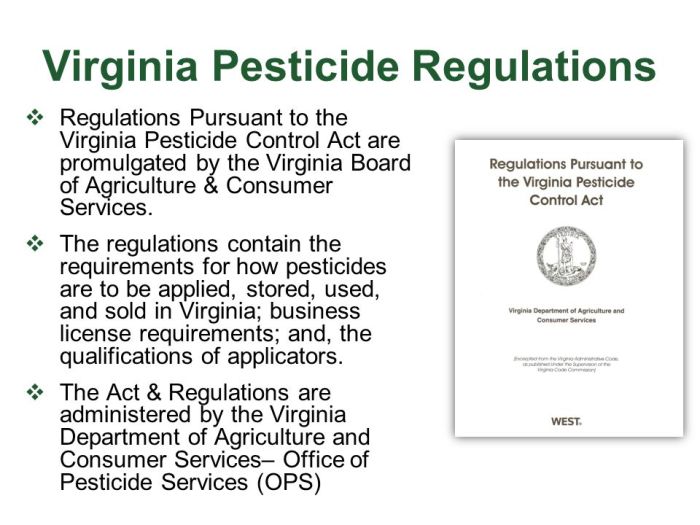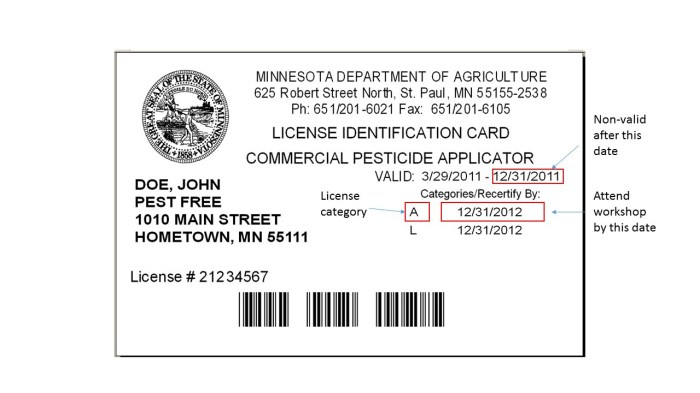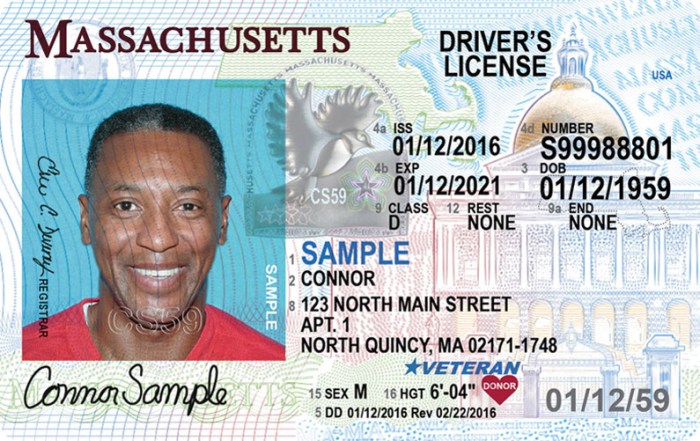The Massachusetts pesticide license practice test is an essential tool for individuals seeking to obtain a pesticide license in the state. This comprehensive test evaluates candidates’ knowledge of pesticide safety, application techniques, and environmental regulations, ensuring their competence in handling and using pesticides responsibly.
This practice test covers a wide range of topics, including pesticide categories, subcategories, key concepts, and sample practice questions. By utilizing this valuable resource, candidates can effectively prepare for the actual exam, increasing their chances of success.
Introduction to Massachusetts Pesticide License Practice Test

The Massachusetts pesticide license practice test is a comprehensive assessment tool designed to evaluate the knowledge and understanding of individuals seeking to obtain a pesticide license in the state of Massachusetts. This test plays a crucial role in ensuring that pesticide applicators possess the necessary skills and knowledge to handle and use pesticides safely and effectively.
The target audience for the Massachusetts pesticide license practice test includes individuals who intend to apply pesticides for commercial or private purposes. By passing this test, applicants demonstrate their proficiency in pesticide-related topics and their commitment to responsible pesticide use.
Content Covered in the Test
| Pesticide Categories | Subcategories | Key Concepts | Practice Questions |
|---|---|---|---|
| General | Pesticide Laws and Regulations | – Federal and state pesticide regulations
|
– What is the maximum penalty for violating pesticide laws?
|
| Insecticides | Types of Insecticides | – Insecticide modes of action
|
– Which insecticide is most effective against aphids?
|
| Herbicides | Types of Herbicides | – Herbicide modes of action
|
– Which herbicide is best suited for controlling broadleaf weeds?
|
| Fungicides | Types of Fungicides | – Fungicide modes of action
|
– Which fungicide is most effective against powdery mildew?
|
| Rodenticides | Types of Rodenticides | – Rodenticide modes of action
|
– Which rodenticide is most effective against rats?
|
Test Format and Structure

The Massachusetts pesticide license practice test consists of 50 multiple-choice questions. Candidates are given 60 minutes to complete the test, with a passing score of 70% or higher. The test is divided into five sections, each covering a different category of pesticide use:
- General
- Insecticides
- Herbicides
- Fungicides
- Rodenticides
Each section contains questions that assess the candidate’s knowledge of pesticide laws and regulations, pesticide safety and handling, pesticide application techniques, and pesticide resistance management.
Study Resources and Preparation Tips: Massachusetts Pesticide License Practice Test

To prepare for the Massachusetts pesticide license practice test, candidates can utilize a variety of study resources, including:
- Online courses and tutorials
- Textbooks and manuals
- Practice tests and sample questions
- Study groups and discussion forums
Effective preparation strategies include:
- Reviewing the pesticide laws and regulations for Massachusetts.
- Understanding the different types of pesticides and their modes of action.
- Practicing pesticide application techniques and calculations.
- Staying up-to-date on pesticide resistance management strategies.
- Taking practice tests to identify areas of weakness and improve overall performance.
Benefits of Passing the Test

Passing the Massachusetts pesticide license practice test offers several benefits to individuals seeking to obtain a pesticide license:
- Enhanced Career Opportunities:A pesticide license opens up career opportunities in various industries, including agriculture, pest control, and landscaping.
- Professional Credibility:Obtaining a pesticide license demonstrates a commitment to responsible pesticide use and adherence to industry standards.
- Legal Compliance:In Massachusetts, it is illegal to apply pesticides without a valid license. Passing the practice test is a step towards obtaining a license and ensuring compliance with state regulations.
FAQ Insights
What is the purpose of the Massachusetts pesticide license practice test?
The Massachusetts pesticide license practice test is designed to help candidates prepare for the actual pesticide license exam, assessing their knowledge of pesticide safety, application techniques, and environmental regulations.
What topics are covered in the practice test?
The practice test covers a comprehensive range of topics, including pesticide categories, subcategories, key concepts, and sample practice questions.
How can I prepare for the practice test?
To prepare for the practice test, it is recommended to utilize online courses, textbooks, and practice materials. Additionally, reviewing previous test questions and understanding the test format can be beneficial.
What are the benefits of passing the practice test?
Passing the practice test provides candidates with increased confidence and familiarity with the actual exam format. It also helps identify areas where further study is needed, maximizing their chances of success.